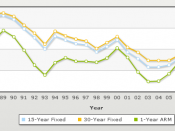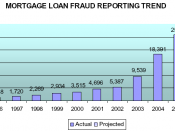As we know, the acquirement of real estate is one of the most expensive goods. Its purchase, in fact, cannot be made by means of current incomes or accumulations of consumers. In new economic conditions therefore the problem of maintenance of the population with house cannot be solved without application of mechanism of long-term crediting. Most precisely constructed and fulfilled system of such a credit now is considered mortgage market.
Mortgage lending enables to establish a long-term capital market, and solve housing problem that is very crucial in almost all transition countries. After corporate issues, mortgages are the most prominent capital market instruments in developed countries. In these countries purchase of real estate on credit is not only the basic form of the decision of housing problem for population, but also essential sphere of economic activities, in which the key role is played by the bank and other financial structures providing necessary inflow of capital in this sphere.
In large OECD countries (e.g. US., UK., Germany), the stock of mortgage loans is often over 50 percent of GDP. Even in France, which has a weaker tradition of mortgage lending, this stock is 50%, and in Italy, it is about 10%. At the same time, mortgage financing for commercial and residential building is virtually non-existent in the transition economies. The only transition economy with a mortgage loan to GDP ratio over 5 percent in 2000 was Estonia. In the other advanced transition economies, this ratio is about 2 or 3 percent on average.
Mortgage financing in the transition economies often lacks many of the characteristics found in more developed markets (sound long-term capital market, effective legislative base, and sophisticated method of assessing real estate). In transition economies loan to value ratios are small, maturities are short, and the loans are...


